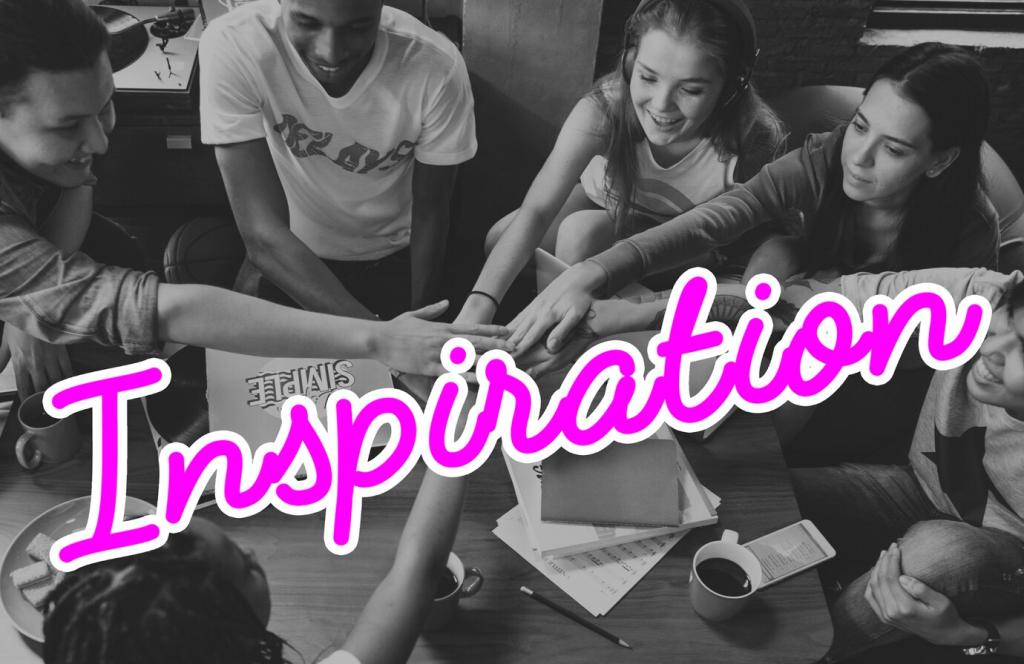The Impact of Inspirational Leadership on Team Growth
Today’s chosen theme: The Impact of Inspirational Leadership on Team Growth. Step into a story-driven, practical space where vision turns into momentum, people feel seen, and teams compound small wins into outsized results. Join us, share your voice, and grow with purpose.

What Inspirational Leadership Really Means for Team Growth
From Vision to Action
Teams grow when a leader paints a believable future and connects it to today’s work. Inspirational leadership bridges ambition and action with clear priorities, meaningful context, and repeating rhythms that transform abstract goals into practical, energizing steps everyone can follow.


Psychological Safety as the Growth Engine
Google’s Project Aristotle spotlighted psychological safety as crucial for team effectiveness. Inspirational leaders cultivate it through curiosity, follow-through, and humble transparency, making it safe to raise risks, question assumptions, and iterate—conditions where growth becomes a shared habit, not a lucky streak.
Motivation Mechanics: Purpose, Autonomy, and Mastery
Inspirational leadership connects the mission to individual meaning. People contribute more when they understand the real-world change their effort creates. Invite stories from customers, highlight impact, and ask your team: whose life improved because we showed up this week?


Communication Habits that Scale Inspiration
Paint the Future in Specifics
Inspirational leadership turns vague ambition into vivid pictures: a date, a state, and a user smiling for a reason. Describe success in concrete terms so teams can reverse-engineer the path. Specific futures invite initiative; blurry ones invite hesitation and drift.
Listen with Curiosity and Courage
Great leaders listen for insight, not agreement. Ask open questions, reflect back what you heard, and name tensions without blame. Curiosity plus courage uncovers root causes quickly, enabling growth without burnout. Try one brave listening question in your next standup and report back.
Celebrate Learning, Not Just Wins
If only outcomes matter, risk-taking shrinks. Celebrate experiments, clean reversals, and elegant failures that taught something valuable. This keeps momentum during hard sprints and attracts talent that loves to learn. Subscribe for weekly prompts to make learning celebrations easy and authentic.
Commitments, Not Commands
Have people state commitments in their own words, along with risks and support needs. This transforms accountability from top-down pressure to shared ownership. When commitments are co-created and visible, teams self-correct faster and grow confidence alongside capability.
Peer Accountability Circles
Small peer groups reviewing goals weekly can work wonders. Peers ask for evidence, offer resources, and witness progress. The dynamic is human, not hierarchical, which keeps it honest. If you try this, comment with one guideline that made your circle thrive.
Transparent Metrics that Motivate
Make metrics public, comprehensible, and connected to the mission. Dashboards should invite questions, not fear. When numbers tell a hopeful, actionable story, people lean in. Inspirational leadership uses metrics as mirrors for learning, not weapons for shame.

Monday: Set Context and Energy
Share the week’s purpose, the single most important outcome, and known risks. Ask for concerns early. A five-minute intention round gets voices in the room. This sets a tone where inspiration feels practical, not performative, and growth becomes a shared expectation.
Wednesday: Coach and Clear Obstacles
Midweek is for coaching and unblocking. Run short office hours, model problem-framing, and escalate decisively. Protect deep work windows. Inspirational leadership shows up where friction is highest, turning obstacles into opportunities for skill-building that compounds across projects.
